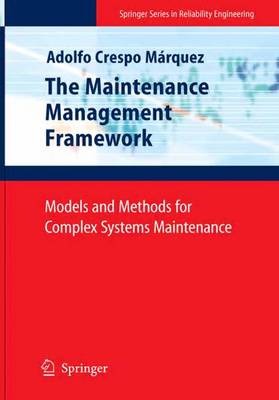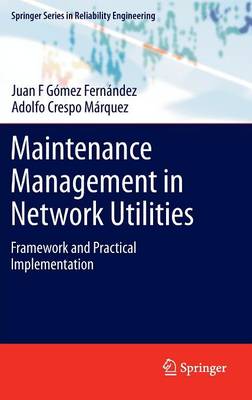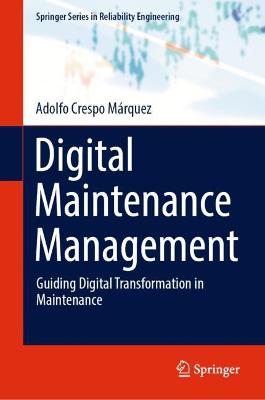Springer Series in Reliability Engineering
3 total works
"The Maintenance Management Framework" describes and reviews the concept, process and framework of modern maintenance management of complex systems; concentrating specifically on modern modelling tools (deterministic and empirical) for maintenance planning and scheduling. It will be bought by engineers and professionals involved in maintenance management, maintenance engineering, operations management, quality, etc. as well as graduate students and researchers in this field.
Maintenance Management in Network Utilities
by Juan F Gomez Fernandez and Adolfo Crespo Marquez
In order to satisfy the needs of their customers, network utilities require specially developed maintenance management capabilities. Maintenance Management information systems are essential to ensure control, gain knowledge and improve-decision making in companies dealing with network infrastructure, such as distribution of gas, water, electricity and telecommunications. Maintenance Management in Network Utilities studies specified characteristics of maintenance management in this sector to offer a practical approach to defining and implementing the best management practices and suitable frameworks.
Divided into three major sections, Maintenance Management in Network Utilities defines a series of stages which can be followed to manage maintenance frameworks properly. Different case studies provide detailed descriptions which illustrate the experience in real company situations. An introduction to the concepts is followed by main sections including:
* A Literature Review: covering the basic concepts and models needed for framework design, development and implementation.
* Framework Design and Definition: developing the basic pillars of network utilities maintenance management framework.
* Performance Evaluation & Maturity: focusing on the reliability concept and maturity models from different viewpoints.
By establishing basic foundations for creating and maintaining maintenance managements strategies, Maintenance Management in Network Utilities acts a practical handbook for all professionals in these companies and across areas such as network development, operations management and marketing.
This book provides a thorough overview of the integration of cyber-physical systems and maintenance management models. It begins by explaining the fundamental concepts behind maintenance digital transformation. It discusses key decision areas in digital maintenance management, particularly focusing on strategic dimensions of maintenance, digital twin definition and strategy, and industry 4.0 digital tools frameworks to support emerging maintenance processes. Furthermore, the monograph dedicates time to the integration of digital maintenance with the entire digital factory.
By presenting the possibilities for asset utilization improvement and for asset value enhancements, Digital Maintenance Management provides engineers and practitioners responsible for the management of complex industrial assets a complete guide to piloting the maintenance digital transformation.


